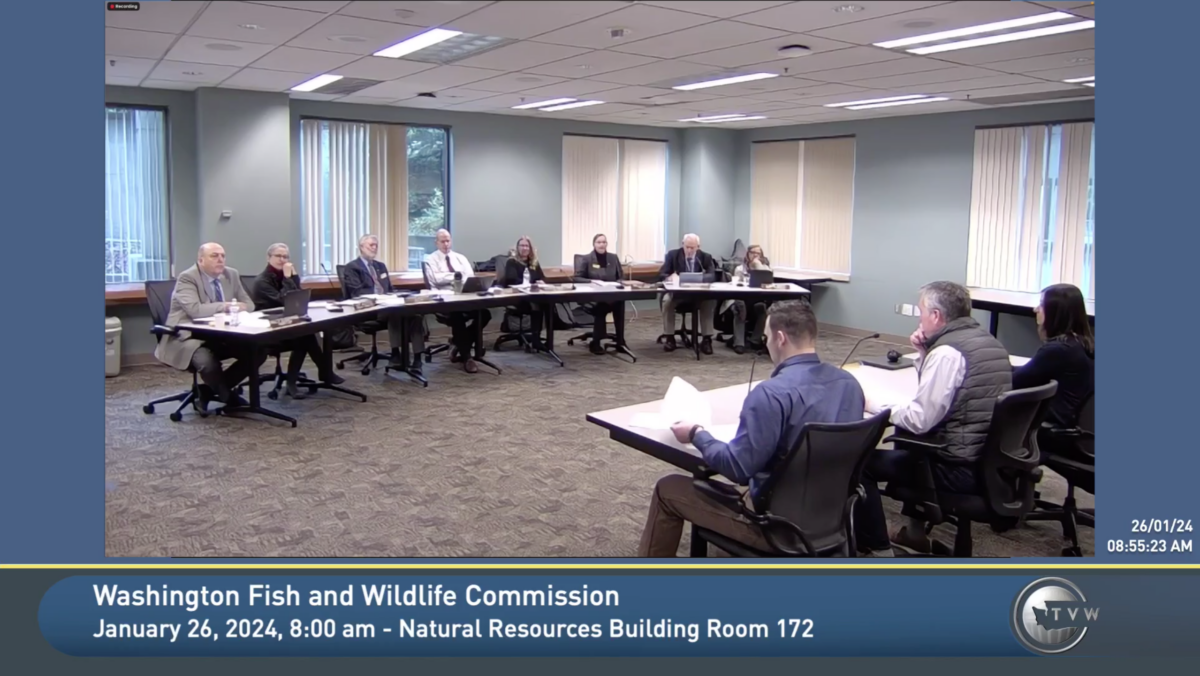
WA Fish And Wildlife Commission, Overreach, Rinse, Repeat
Has the Washington Fish and Wildlife Commission lost the plot so soon?
A bit more than 24 hours after they learned the hard way that their Conservation Policy wasn’t going to cut it with at least half a dozen tribes – sovereign nations with treaty rights that they comanage fishing and conservation issues with – a few of the same members wanted to tell the state of Oregon how it was going to manage Columbia River salmon fisheries.

The commission was about to approve delegating 2024 fisheries negotiations with Oregon to WDFW Director Kelly Susewind when Vice Chair Tim Ragen inserted something of a surprise amendment to direct Susewind to try and wrangle ODFW Director Curt Melcher (and whomever is hired for that post come April 1) into agreeing to set aside gillnet license buyback impacts in their jointly managed seasons.
The buyback was part of a $14.4 million budget proviso passed by Washington‘s legislature a few years ago and has reduced the number of Washington nontribal commercial gillnet licenses available to work the big river for Chinook markedly. It also has a Washington goal of allowing some percentage of the Endangered Species Act-listed salmon run to continue on its way to the spawning grounds or be caught in mark-selective sport fisheries.
In theory, giddyup.
In practice, enter September 13 in the year of our lord 2023.
That’s the day Oregon wanted to hold two fall Chinook-directed commercial openers on the Lower Columbia, Washington only agreed to one to reserve those impacts, Oregon said screw you and opened its part of the river on the other day and caught 449 kings, and the states slipped further out of concurrence set up by previous Washington Fish and Wildlife Commission actions.
Fast forward back to today’s annual approval of the Columbia River Salmon Fishery Management Policy 3630.
Commissioner Jim Anderson had made the original clean motion recommended by WDFW staff to authorize Susewind to work on another year’s seasons – the whole Columbia River Compact process – but he was surprised by Ragen’s tweak, terming it to something of a bait and switch like he felt was being seen with wildlife issues before the commission.

Anderson stated that Susewind had said he didn’t need anything like that direction and that he himself didn’t think it would be useful.
Commissioner Molly Linville said the members had an unofficial no-surprises policy and that springing the amendment on the commission at that point of the decision-making process didn’t give her any time to think about it.
Commissioner Steven Parker said it wasn’t clear to him what it would obligate Susewind to do, could lead to a fishery shutdown if there was a disagreement, and felt like he was “jumping into something we may not fully appreciate.”
Parker also likened Columbia River salmon management to “a house of cards” that was inadvisable to start jiggling with.
Commissioner John Lehmkuhl was also surprised and felt that Anderson’s original motion was inclusive enough to hold director discussions around buyback impacts.
In support of Ragen’s amendment, Commissioner Lorna Smith seconded it and Commissioner Melanie Rowland said it wasn’t “rocket science” to seek out ways to further the goal of conserving salmon.
But Chair Barbara Baker was a no and that essentially was the death knell.
“I don’t believe we can put something in a motion that isn’t legally possible,” Baker said, adding that Washington couldn’t tell Oregon not to fish on available impacts.
Reading the room, Ragen offered to walk back his amendment, adding that he hadn’t intended to catch fellow commissioners off guard and in his defense said that they had been talking about Columbia management for a year.
He said his amendment wasn’t about having Susewind beat Melcher over the head but a way to extend that Washington legislative budget proviso well into the future – another part of his amendment was to delete the year 2024 from the delegation of authority so that it was open-ended.
From his end of the table, Susewind noted that Melcher had pointedly told him that Washington’s legislature wasn’t his legislature but had still offered to work with Washington on the issue.
But Susewind also called the amendment “another layer in the 32 million layers we have to go through” and said it wouldn’t be helpful.
That led Smith to withdraw her second and Ragen, while “puzzled by the resistance,” to pull his amendment.
Then the commission voted on WDFW staffers’ original recommended language and it passed unanimously and they went to lunch.
That members would have forgotten so soon that a fisheries comanager is on their same level if not higher and not below them is puzzling given yesterday’s stunning withdrawal of the Conservation Policy after at least six tribes and their attorneys got involved and this morning’s public comment from Lisa Wilson of the Lummi Nation who addressed Rowland’s question Thursday whether the commission had to consult with the tribes on every “policy, rule, guidance – I mean, whatever we vote on?”
“You’re damn right,” said Wilson. “If it affects our treaty rights, it has to be consultation.”
One can imagine Oregon responding similarly if this commission told it what to do with Washington gillnet buyback impacts.
